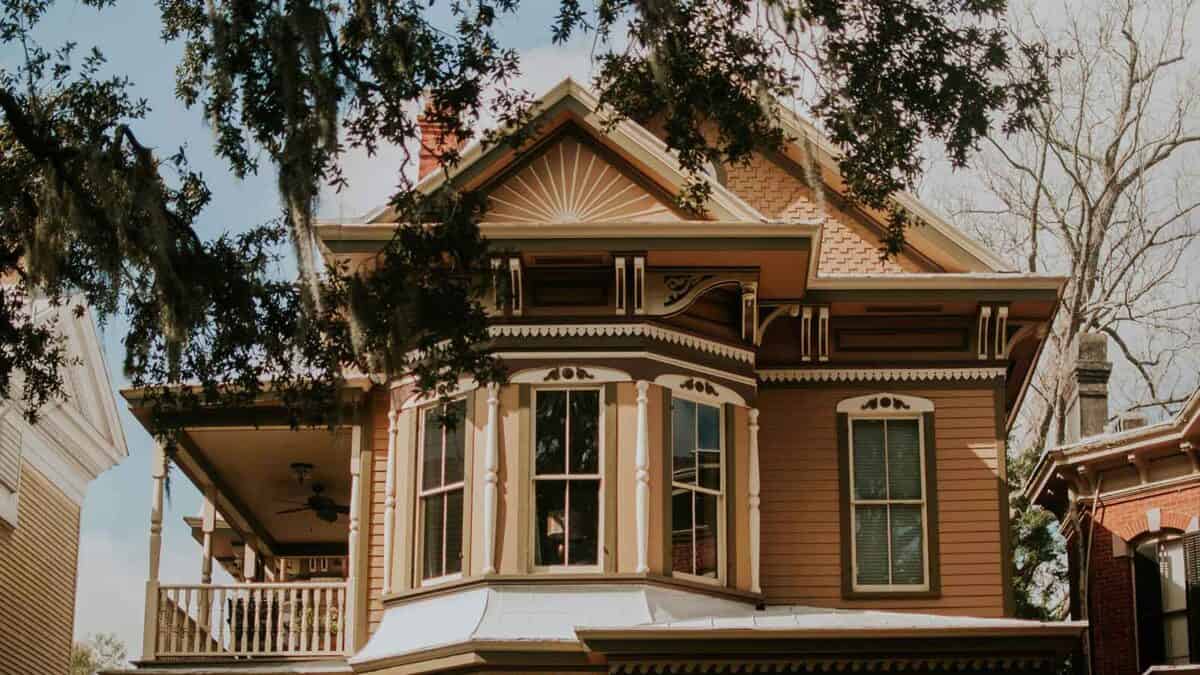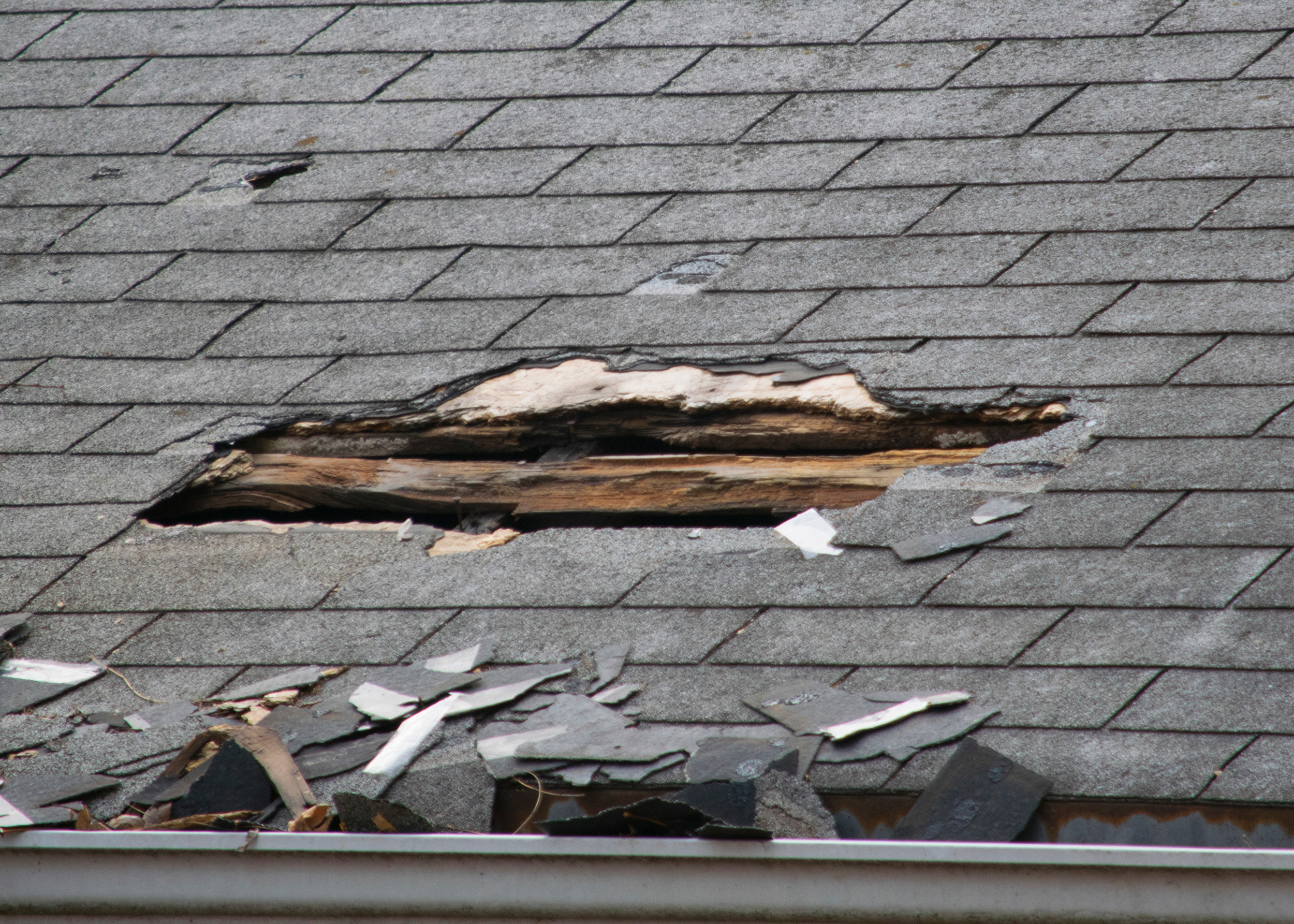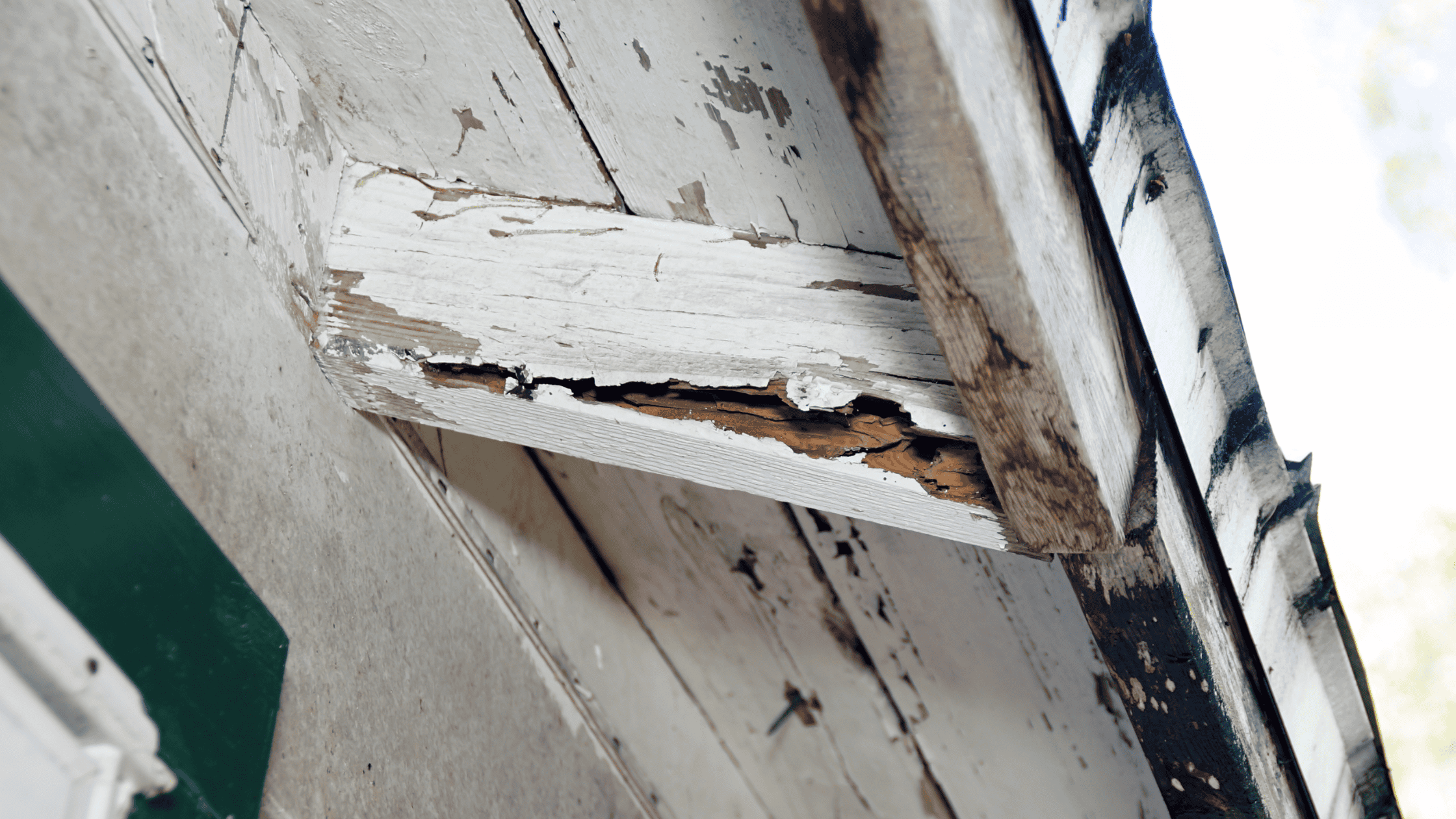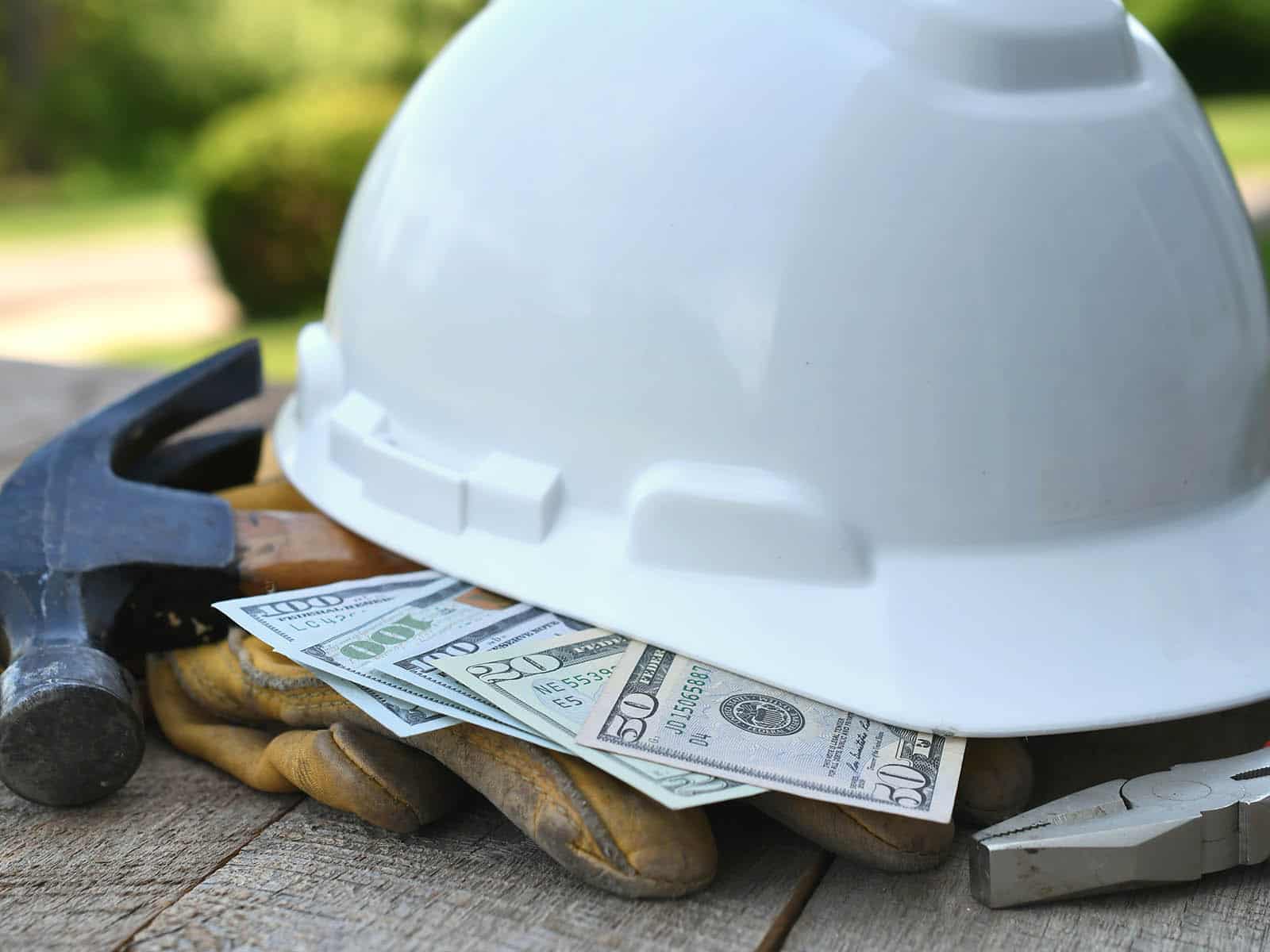The roof over your head is essential to your family’s safety. That’s why you should carefully consider the best roofing materials for your Georgia home. Your roof is the first line of defense against weather, debris, and other hazards. In Georgia, it’s especially important to plan how your roofing materials will withstand humidity and storms. At SlopePro, we install industry-best roofs using today’s most advanced, energy-efficient, and affordable materials. To help you make key decisions, our experts at SlopePro have put together everything that Georgia homeowners need to know about selecting roofing materials.
Jump Ahead
- Georgia’s Climate and Roofing Choices
- Top Roofing Materials
- Roofing Energy Efficiency and Cost-Effectiveness
- Aesthetic and Home Value Considerations
- Durability and Maintenance
- Why SlopePro is the Ideal Choice
- Select the Right Roofing Materials
- FAQs
Georgia’s Climate and Roofing Choices
Knowing how extreme weather impacts a roof can help you prepare your home for the worst. Although Georgia has mild winters, this state is known for its hot, humid conditions in the summer. Humidity is a major threat to your roof’s health, as it can accelerate wear-and-tear and moss/mold growth. When moisture gets trapped for extended periods, your roof may even suffer from wood rot, shingle decay, and other structural damage. Summer storms may also necessitate emergency roof services, especially if your home is battered by high winds and heavy rain. Wind can loosen off shingles and expose your roof to the elements. It can also cause branches and power lines to fall on your roof. What’s more, heavy rain can make your roof vulnerable to leaks, and gutter damage.
Top Roofing Materials for Georgia Homes
Given Georgia’s challenging climate, it’s crucial to choose materials that can withstand these environmental factors. Whether you require a roof replacement or new roof, opt for high-caliber materials. While metal roofing is considered the most durable for severe weather, asphalt and flat roofing are also solid options to safeguard your home.
Asphalt Shingle Roofing
Durability: 15-30 years
Cost: $6,000–$10,000
Asphalt shingle roofs are the most popular choice today. Not only are they highly affordable, but they last for up to 30 years.
Pros:
- Great value, as these shingles are both inexpensive and durable
- Easy to install and replace as needed
- Aesthetically pleasing, with a variety of styles and colors
Cons:
- Vulnerable to extreme weather, such as high winds and more
- High maintenance costs, as shingles must be regularly inspected/replaced
- Not very eco-friendly, though newer shingle models have solar-reflecting granules that improve efficiency
Metal Roofing
Durability: 50-75 years
Cost: $9,000–$17,000
Metal roofs offer one of the most durable options on the market, lasting a whopping 50+ years if properly maintained. They also boast of top energy efficiency, due to excellent solar reflection.
Pros:
- Extremely durable, outlasting all other materials and withstanding extreme weather
- Best-in-class energy efficiency, which can lower your bills
- Little to no maintenance required
- 100% safe, as these roofs are protected from fire and lightning
Cons:
- Upfront cost is much more significant, though the long-term savings are high
- Some homeowners aren’t fond of the aesthetic, though newer models have more attractive options
- Noise from rain on the roof is more notable than other materials
Flat Roofing
Durability: 20-25 years
Cost: $3,000-$10,000
Flat roofs are common for commercial and historical buildings that don’t have the space or pitch available for a sloped roof. Sometimes a flat roof is specifically planned to add a rooftop lounge or garden.
Pros:
- Cheaper, as the roof takes up less space and materials
- Great energy efficiency due to better insulation and a protective coating
Cons:
- Rain/snow is more likely to accumulate, requiring special maintenance
- Durability is 25 years maximum with proper care, so you’ll need to replace it more often than other materials
Roofing Energy Efficiency and Cost-Effectiveness
The right roofing materials can boost your home’s energy efficiency and reduce bills by up to 25%. In the hotter climate of Georgia, you can both save money and keep your home cool in the summer with a more energy-efficient roof. Some key characteristics of an eco-friendly roof include:
- Solar reflectance: Materials that reflect sunlight stop heat from getting trapped under your roof. Called the Solar Reflectance Index (SRI), this metric is a decisive factor for your home’s energy efficiency.
- Ventilation: Airflow in your attic prevents heat from building up.
- Insulation: A protective layer between your attic and your roof fends off extreme temperatures.
- Protective coating: Coatings are especially common on flat roofs to boost solar reflection.
In turn, choosing energy-efficient roofing materials can be good for your wallet. When your roof is reflective and well-insulated, it’s less likely to be impacted by outdoor temperatures. That means you don’t have to spend as much on heating/cooling your home. Eco-friendly materials can also extend your roof’s durability. Metal and clay tiles are less vulnerable to wear and tear, which means you can save on long-term replacement costs.
Aesthetic and Home Value Considerations
Of course, your roof isn’t just structurally important. It also impacts the overall curb appeal. That’s why a new roof improves home value significantly. In addition, the aesthetics of roofing materials play a key role in your home’s look and feel. Work closely with an expert Georgia roofing company to choose both durable materials and the right style/color to enhance your home. For example, shingle roofs come in diverse styles that can be tailored to your vision. Other options such as metal or clay tile can also complement certain architectural styles well.
Durability and Maintenance
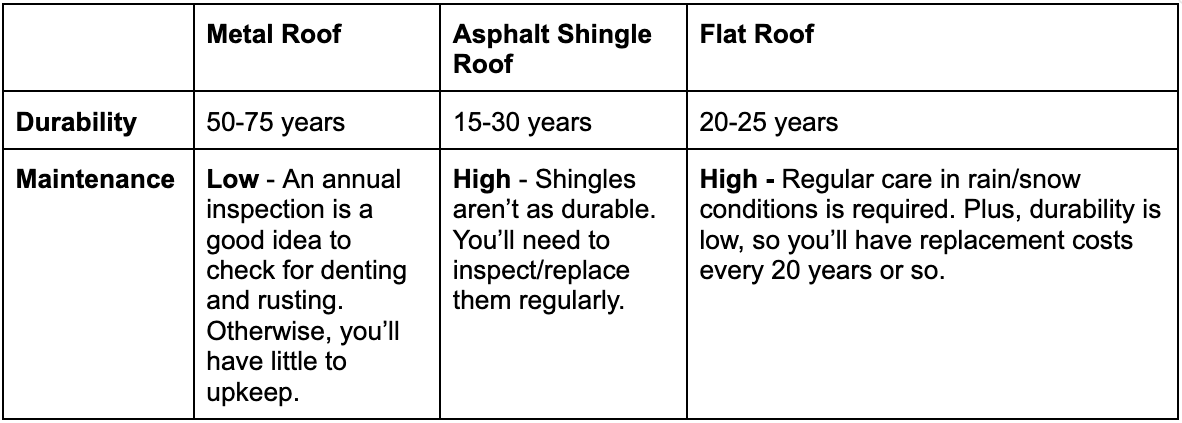 Keep in mind that value matters for your property, too. How long a roof lasts depends on having high-quality, durable materials. Choosing a metal roof vs. asphalt shingle roof is by far the best choice for a long lifespan and low maintenance. When it comes to other materials, you’ll have to invest in seasonal and yearly maintenance to keep it in top condition. Regardless of which roofing material you select, you can extend its lifespan by:
Keep in mind that value matters for your property, too. How long a roof lasts depends on having high-quality, durable materials. Choosing a metal roof vs. asphalt shingle roof is by far the best choice for a long lifespan and low maintenance. When it comes to other materials, you’ll have to invest in seasonal and yearly maintenance to keep it in top condition. Regardless of which roofing material you select, you can extend its lifespan by:
- Cleaning your roof and gutters every season
- Trimming trees and checking for falling debris regularly
- Fixing minor leaks ASAP to avoid greater roof damage due to delays
- After severe weather, always getting a storm damage roof assessment
- Scheduling a yearly roof inspection
Why SlopePro is the Ideal Choice for Georgia Homeowners
To preserve your home in Georgia, you need the best roof on the market. Our experts at SlopePro provide full-range roofing services to cover all your needs. Whether you require an inspection, installation, or repair, we demonstrate our 100+ years of experience in every roofing job. As a top-ranked roof repair contractor, we prioritize business integrity and high-caliber craftsmanship. To achieve this, we offer:
- Honest and thorough quotes, using our 12-Point SlopePro Forensic Inspection
- Highest quality materials with the longest warranties in the industry
- Top value that combines best-in-class roofing with straightforward pricing
What’s more, we’re experts in the Georgia area roof industry and know how to advise your family on the right roofing materials and styles for the region. Schedule a free roof inspection with SlopePro today!
Select the Right Roofing Materials With SlopePro
Diverse factors go into selecting the best roofing materials for your Georgia home, including the materials’ durability, energy efficiency, cost, aesthetics, and more. No matter which roofing materials you choose, our specialists at SlopePro are ready to create a work plan tailored to your needs. Get in touch with us to discuss our expert roofing solutions and industry-best materials. We provide a personalized, honest consultation about your options, so you’re confident about meeting your roofing vision.
FAQs on Roofing Materials
What are the best roofing materials for hot climates?
Metal, clay tiles, and slate are ideal for hot climates, as they reflect off sunlight and keep your house cool in the summer.
What roofing materials are durable against extreme weather?
Metal roofing is extremely durable against all types of extreme weather, including heat, humidity, high winds, heavy rain, snow, and storms. Depending on your local climate, clay tiles and slate may also be sturdy options.
What is the most energy-efficient roof?
Metal roofing is highly reflective, stopping sunlight from heating up your house. That’s why this material has one of the best Solar Reflectance Index (SRI) scores, enabling you to get top energy savings. In contrast, asphalt shingles generally aren’t eco-friendly, but newer models come with solar-reflecting granules that can boost your energy efficiency.
What roofing materials last the longest?
Metal roofing and clay tiles can last 50+ years, while slate can surpass 100+ years. Each of these roofing materials has a long lifespan, making them first-rate choices for your roof replacement or new roof.
What is the most affordable roofing material?
Asphalt shingles are by far the most affordable upfront roofing investment. However, if you consider ongoing costs, asphalt only lasts 15-30 years and requires regular maintenance. That means you may get significant cost savings in the long term by choosing a more durable option such as metal roofing.
When is the best time for roof replacement?
Fall’s comfortable temperatures and consistent weather make for the ideal season for roof replacement. You may schedule roof replacements in other seasons as well, but you’ll need to watch out for low temperatures in winter, rainy weather in spring, and storm forecasts in summer.
